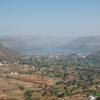
In 2021, the fairSTREAM project was selected as one of the first high impact Strategic Initiatives at IIASA. Below is an update on what the project has achieved to date.
One of the fairSTREAM project’s main objectives is to create visibility for the importance of co-production processes in applied systems analysis. Co-production refers to a specific subset of stakeholder engagement where scientists and heterogeneous groups of stakeholders equally contribute to knowledge creation. Therefore, in its first months, Jenan Irshaid and colleagues conducted IIASA internal focus groups to explore the diverse range of experiences with stakeholder work at IIASA and initiated a systematic review to explore essential elements of co-production processes.
Addressing another fairSTREAM objective – considering justice beyond efficiency considerations in systems analysis – researchers started work on an inventory of co-production methods in use at IIASA, exploring their capacity as systems analytical tools and instruments to assess justice. As a reference for the latter, Susanne Hanger-Kopp, recently joined guest researcher Helena Zhemchugova, and Paul Johannesson from Stockholm University, developed an ontology of justice, which has been accepted for publication and presentation at the 34th International Conference on Advanced Information Systems Engineering (CAiSE 2022) set to take place in Leuven, Belgium from 6 to 10 June 2022.
fairSTREAM’s main case application is set in India. For this purpose, researchers from two Indian institutions, the Indian Institute of Science Education and Research (IISER), Pune and the Society for Promoting Participative Ecosystem Management (SOPPECOM), have joined the team. They will lead the work on the ground on the Indian case study together with Barbara Willaarts and design a co-production process on decision making at the water-food-biodiversity nexus in the Bhima basin.
Also, in India, the fairSTREAM team explores higher-level research opportunities to address regional mitigation and adaptation strategies for biodiversity, together with the Technology Information, Forecasting, and Assessment Council (TIFAC), the IIASA National Member Organization for India.
In parallel, Jens de Bruijn is leading efforts to couple the IIASA Community Water Model (CWatM) and an agent-based model that allows simulation of individual farming households and their decision-making, as well as integrating a better representation of diverse and growing forests in CWatM. A graphical user interface was developed for the model to facilitate interaction between modelers and stakeholders.
News

27 February 2024
Second stakeholder workshop of the fairSTREAM project

29 November 2023
Embracing ecological perspectives, tools, and models to navigate the digital economy

29 November 2023

